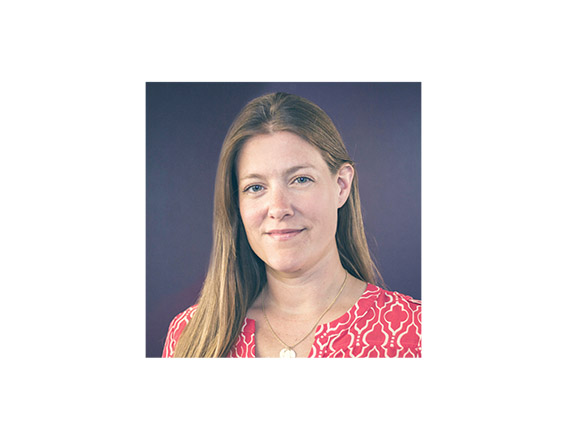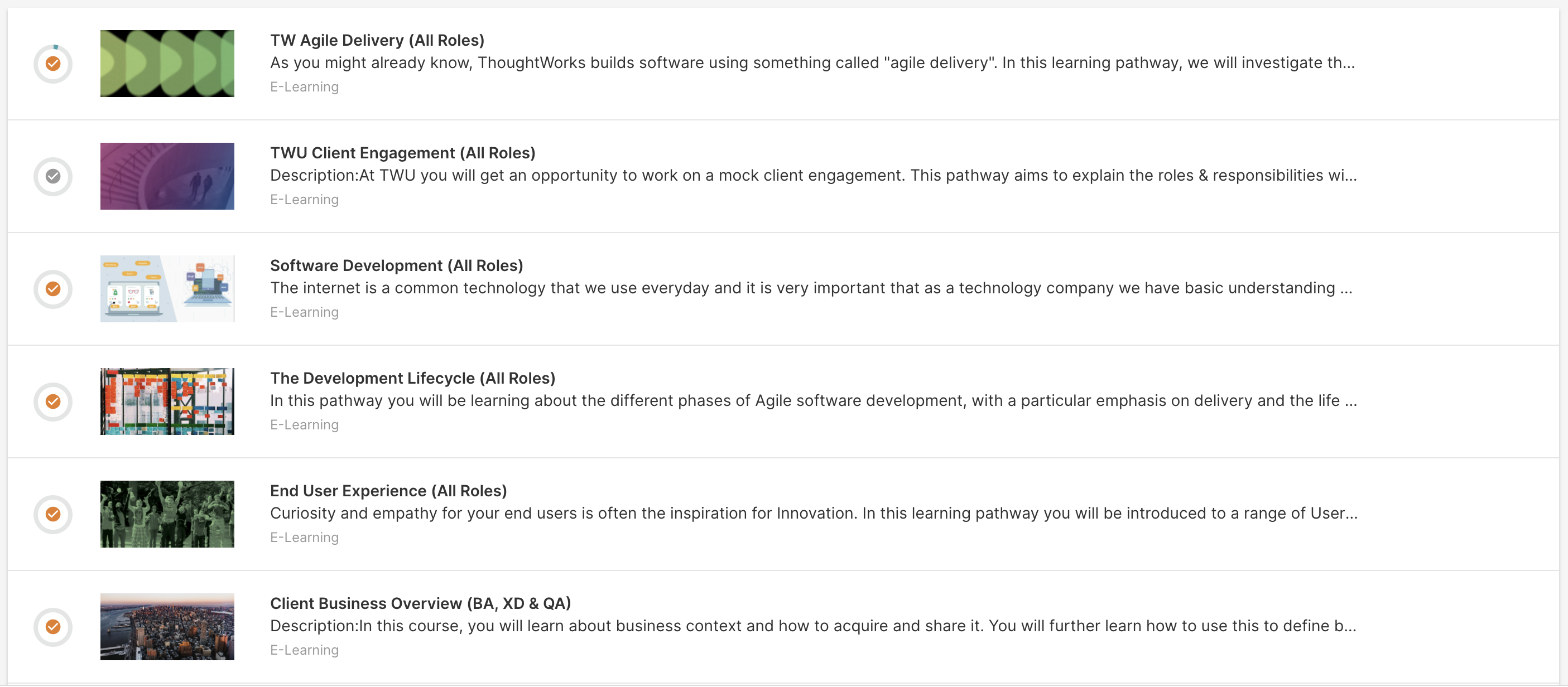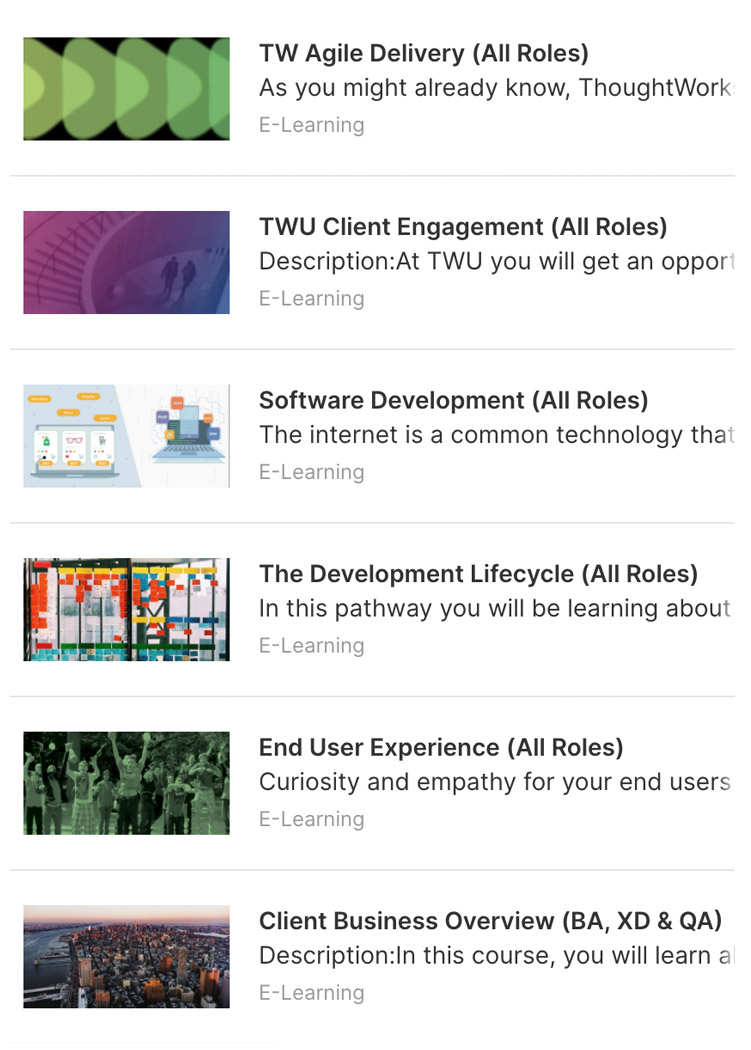Any enterprise engaged in hiring is quickly adjusting to the reality that it’s a candidate’s market. Nowhere is this truer than when it comes to technology roles. The battle to find and retain digital talent shows no signs of easing, in large part because almost all roles now touch on digital functions or require a degree of tech familiarity.
According to LinkedIn over 150 million technology-related jobs will be created globally over the next five years alone, with artificial intelligence (AI), data science and user experience (UX) among the most in-demand roles. Talent shortages are already a daily reality for many businesses. In one recent survey of global technology leaders, over half reported their organizations were being held back by a lack of skills, especially in areas like cybersecurity and change management.
Skills that are shortest in supply


Source: Harvey Nash/KPMG
These gaps could come at a heavy economic cost. By one estimate the global shortage of labor in the technology, media and telecommunications sector will top 4 million workers and represent US$450 billion in lost economic output by 2030 - leading recruitment specialist Korn Ferry to warn that the digital revolution “could be about to hit a wall.”
The rise of remote working is adding a layer of complexity to this picture and has both positive and negative implications. Being able to engage workers anywhere, in theory, gives employers access to new talent pools. But at the same time virtual working environments make vital processes like training and building culture more difficult. In one survey of employees in the US, almost a third of employees felt coaching and onboarding of new hires had deteriorated since the pandemic.
Demographic realities and an increasingly mobile workforce mean employers may have to accept the talent supply/demand mismatch is permanent, and that it will always be a challenge to hire at a pace that meets their needs. Digitalization and the rapid ascent of new ways of working are also making it clearer than ever that hiring is just one part of an effective approach to talent, and that strategies to develop and retain people will also need to evolve in line with new realities.
i. Expanding the definition of talent
According to Joanna Parke, Chief Talent Officer at Thoughtworks, as conditions shift one key principle is emerging for would-be employers: the search for tech talent shouldn’t be limited to technologists. Rather than seeking tech experts, she explains, companies should be aiming to find people “built to work in a period of uncertainty.”
That search involves putting less priority on experience and certifications, and emphasizing skills that are ‘softer,’ but genuinely future proof. “We look in the hiring process for people who have a passion and high aptitude for learning, who are curious, highly collaborative and like creating impact as part of a group,” she explains.
Thoughtworks Global Head of Recruitment, Marcus Thorpe says the years’ worth of recruitment data accumulated at his former employer, Google, made one thing clear: “The only direct correlation between excellence in an interview and excellence as an employee was if a candidate demonstrated learning ability during the interview process.”

“When it comes to the difference between good and great talent, being intellectually curious is the ultimate differentiator.”
Marcus Thorpe
Global Head of Recruitment, Thoughtworks
“When it comes to the difference between good and great talent, being intellectually curious is the ultimate differentiator,” he adds. This is not to say technological skills will suddenly be rendered obsolete - rather that “there’s a spectrum,” Parke says. “For many of our roles we’re looking for people who do have specific technical abilities, but cultural characteristics and values are often harder to teach.”
“We’re finding that in order to compete for talent, we’re having to broaden the lens on the people we’re bringing in, and to do more teaching and talent development,” she adds. “It’s not about compromising on anything valuable to the new hire or to us - it’s just recognizing that not everyone has had the opportunity to learn the same skills, practices and ways of working.”
Trying to assess different skills necessitates adjustments to the traditional interview process and the way skills are tested.
“It’s one thing to ask questions about curiosity or temperament in an interview; it’s another to see those things in action,” Parke notes. “Even remotely, in the interview we still have a stage where a Thoughtworker is working with the candidate through a problem, making suggestions or asking questions about the way they’re approaching it. You can see how people respond to that, their level of enthusiasm, how much they take advice on board. Those are the moments that we’re trying to create - where you really go beyond the canned responses and get to see how someone really thinks.”
The best interviews “can sometimes be a bit of a debate, to see how open people are to being challenged - in a pleasant way - on their ways of thinking,” Thorpe says. “Because we’re very deliberate with giving feedback as a company, it’s important that our people are able to be challenged or constructively redirected. The interview has to make sure that candidates are open to change or new ideas. And if they are, they’re probably going to be able to help influence those ideas, and our clients as well.”
ii. Find out what employees want - and encourage them to come to you
The pandemic is also forcing companies to rethink how they source new talent. Some of the most effective traditional recruitment techniques - such as campus visits and open days - have become more difficult or even impossible. Parke notes that it becomes even more vital for companies to invest in marketing themselves as employers, and in reaching potential recruits via new channels.
“We’ve certainly stepped up our efforts on employer branding, recruitment marketing and trying to reach people in different ways,” she explains. “We stand out by taking a strong approach to storytelling. We want to highlight the parts of our mission, culture and ways of working that we know are different from other companies - by showing and telling, not just saying the words.

“We stand out by taking a strong approach to storytelling. We want to highlight the parts of our mission, culture and ways of working that we know are different from other companies - by showing and telling, not just saying the words."
Joanna Parke
Chief Talent Officer, Thoughtworks
So if you look at our social channels, you’ll see we highlight real Thoughtworkers telling their stories about their careers and experiences.”
“Everybody wants to work with great people, which is where the cultural element comes into place,” Thorpe says. “In the tech world there are lots of people who have strong IQs and EQs, but great people also have low ego, and those three things don’t often come together. The key here is authenticity - if you can genuinely demonstrate an authentic value proposition as an employer, and that new hires will work alongside great people, you’ll have a relatively easy job of persuading them to join.”
Strong storytelling, outreach and communications that speak to the organization’s sense of purpose tends to resonate with newer generations of talent. The most recent Trust Barometer survey by consultancy Edelman charts the rise of the “belief-driven” employee, with over 60% of those polled ready to choose, leave or avoid employers based on their values or beliefs. This outlook is even more prevalent among young employees and those in emerging markets.
Beliefs and values now key talent motivators


Source: Edelman
A recent poll of digital talent by Thoughtworks also highlighted how the pandemic has significantly raised the value candidates place on a sense of security, and of contributing to a larger team or cause.
For example, nearly half of respondents said COVID-19 had increased feelings of isolation, but many also saw positives from the pandemic in terms of work-life balance and getting support from management. Feeling overworked and/or a lack of recognition were much larger drivers for people leaving their roles than pre-pandemic. Most of all, people valued factors like feeling they are part of improving the software industry, working for an inclusive employer, and making the world a better place (see Thoughtworks survey, highlighted responses).
Technologists today value being part of something bigger


“People still care about their compensation and career advancement,” Parke explains. “But we’re seeing a shift - and we feel like the pandemic has played a role in this - to people feeling disconnected, overworked and underappreciated.”
In Parke’s view this is directly connected to the acceleration of technology fueled by the pandemic. “Some of the ambitions that companies have - to do more with technology, to respond to changing customer demands - is putting pressure on their people,” she says. “You’ve got people who never banked or shopped online before doing it all the time now; more customers to serve and more expectations to meet.”
The result is that “people are thinking more about how they’re going to be treated, feeling valued, and being able to grow,” she says. “What we saw three years ago was a much more individualistic view, whereas now it’s more about being part of something.”
This speaks to the importance of cultivating a diverse, inclusive workplace where talent of all kinds feels accepted and encouraged. “The sense of belonging to a place where you have psychological safety to be your authentic self, voice your opinion and make mistakes as part of a team that figures things out together is something that we hear again and again is incredibly valuable, especially from new hires,” says Parke.

“The sense of belonging to a place where you have psychological safety to be your authentic self, voice your opinion and make mistakes as part of a team that figures things out together is something that we hear again and again is incredibly valuable, especially from new hires.”
Joanna Parke
Chief Talent Officer, Thoughtworks
Another major draw for talent is the knowledge that the role matters and generates tangible outcomes, whether technological, commercial or, increasingly, social. Thorpe notes this is one area where smaller companies can often outperform their larger, better-known counterparts.
“Nobody wants to be a small fish in a big pond,” he says. “And that’s how you can sell as an employer against a company where everyone’s a faceless entity within a big team and may be working on a project for years that doesn’t come to fruition. The primary reason that people move on is so that they can have an impact and feel that they’re contributing in a worthwhile and fulfilling manner to the projects they’re working on. You could call it the grandparent effect - they want to be able to talk to their grandparents about the job they’re doing with some level of pride.”
Exceptional talent also seeks out opportunities to work on technology that’s interesting, Thorpe adds. “The definition of interesting can differ from person to person - it could be new, it could be cutting edge, or in terms of scale. But they’ll be asking themselves things like: are they influencing the buying habits of thousands of individuals with the code they’re writing? Or working on the latest version of a technology to enhance their technical skills?”
A sustainable talent strategy is based on painstaking but significant steps like fostering an inclusive culture, attending to employee well-being and ensuring people - and the organization - are engaged in work that’s meaningful. Yet the tight labor market is pushing some organizations towards short-term acts of desperation, such as ‘exploding offers’ that push candidates to take the plunge before an extremely tight deadline is hit or watch the offer ‘self-destruct.’
“Competition is tough in the US but even worse in many countries internationally,” says Parke. “In places like Australia and Singapore, where talent markets are relatively small as compared to their economies and borders have been closed, there’s an absolute feeding frenzy as companies trying to go through a high-growth period compete for the same talent. We’re hearing stories about candidates being put under pressure to accept offers or rushed through the hiring process in a way that’s honestly a little unreasonable, and not likely to serve companies well in the long-term.”
“There are always companies out there that are willing to pay more, and that are more desperate than you,” agrees Thorpe. “But if a candidate is only joining for monetary purposes, are they going to be a cultural fit? Are they going to stick around, and want to learn more, or answer the next LinkedIn message they receive offering them an extra $1,000 per year? You have to think about the big picture. Ultimately what we want to do is make sure candidates are comfortable with the decision they’re making, and to come for a lengthy career. If you’re pressuring them from day one, that’s not a good message.”

"Ultimately what we want to do is make sure candidates are comfortable with the decision they’re making, and to come for a lengthy career. If you’re pressuring them from day one, that’s not a good message."
Marcus Thorpe
Global Head of Recruitment, Thoughtworks
iii. Making communication - and performance management - location-neutral
While competition for candidates is heating up everywhere, Thoughtworks’ experience has shown the shift to remote or hybrid working can help cast a wider net for talent. Importantly it’s also demonstrated to clients that they don’t always need their service providers to be in the same room.
“We've always had distributed teams and the ability to support clients with a hybrid of onsite and remote consultants,” says Thorpe. “Pre-COVID, clients often preferred to have our consultants work onsite, side by side with their own employees. Now, with offices closed, they've realized that we're able to support them equally well with remote and distributed talent.”
“The experience has opened up the eyes of many clients and we'll see a very different world in the future where they're more comfortable with relying on offsite support,” he adds. “That gives us more opportunities to hire from different regions in countries where we currently have a presence, and also expand to new ones.”
With hybrid working becoming a permanent part of most workplace strategies, employees are also enjoying greater flexibility and are relieved of the pressure and psychological impacts of commuting. However, the benefits of remote work must be weighed against the potential damage to fostering relationships, connections and the sense of belonging to a team.
The upsides - and downsides - of remote working


Source: Hubble (bars reflect top selections from multiple choice options)
Thoughtworks research shows individual employee experience is almost exclusively dependent on the environment the team leadership creates. Hybrid work makes it even more important for organizations to adopt new approaches and be deliberate in the way they go about forming opportunities for communication and interaction to ensure individuals and teams thrive.
Examples from Thoughtworks’ experience include team intention toolkits, which run teams through a process when they’re formed to ensure the needs and desires of individuals are recognized, and to introduce certainty around how they will communicate and work together. Also useful are icebreaker or team-building events staged in-person, remotely, or even concurrently. Sometimes, a positive step can be as straightforward as a leader checking in with an employee and asking a couple of questions that demonstrate they care.
“In a remote environment, people tend to stick to the work they're doing and to their teams,” Parke says. “We found out that it’s the really basic things, like showing interest in their lives or asking about how they’re doing before diving into work, that makes the difference between a good employee experience and a bad one. These are simple, everyday acts, but they’re powerful and impactful.”

“We found out that it’s the really basic things, like showing interest in their lives or asking about how they’re doing before diving into work, that makes the difference between a good employee experience and a bad one. These are simple, everyday acts, but they’re powerful and impactful.”
Joanna Parke
Chief Talent Officer, Thoughtworks
Without the chance to keep an eye on when people are coming and going, or how intently they’re wedded to their workstations, remote working also raises a few questions about performance management. More than a few companies have tilted into full-blown surveillance to get a better sense of whether their employees are actually working at home. In a recent study by ExpressVPN, 78% of 2,000 employers surveyed reported using employee monitoring software in some capacity, and just under three-quarters admitted to using surveillance data to inform performance reviews.
In the view of Thoughtworks talent experts, this approach is misguided. “A lack of trust for employees is indicative of far bigger problems,” says Parke. “If performance management has become more difficult with remote work, you're probably doing it wrong. It is incredibly important to uncover and eliminate, as much as possible, bias in the performance review process and treat employees fairly, regardless of where or how they’re working.”

"It is incredibly important to uncover and eliminate, as much as possible, bias in the performance review process and treat employees fairly, regardless of where or how they’re working.”
Joanna Parke
Chief Talent Officer, Thoughtworks
Managing employees in a hybrid work environment requires shifting focus from perceptions to tangible results. As Parke puts it: “You need to move away from thinking ‘I see Jane every day and I like her. Therefore, I think she's great and am going to give her a good performance review,’ to ‘I have clear, objective, measurable outcomes that I expect from this job, and our performance conversation is focused on those outcomes.’”
It can also be helpful to incorporate a 360-degree review into the performance evaluation process. “Even in a remote environment, other team members will know who's contributing, who's struggling, and who's checked out,” notes Parke.
Regardless of how it’s structured, any formal performance evaluation should be complemented by a regular feedback loop that gives employees insight on how they are doing on a rolling basis.
“Feedback is a two-way street,” says Thorpe. “Companies need to invest in an internal structure that allows for feedback to happen and to ensure everyone's comfortable delivering and taking that feedback. It’s about recognizing them not just for the job they're doing, but specifically for the impact that they're making.”
iv. Continuous learning, and development as the key to retention - and results
Feedback is an essential part of providing employees opportunities to learn, grow and stretch their impact further - which according to Thorpe is ultimately the most effective way to address skill shortages and keep intellectually curious, motivated people on board. “Without a doubt, rewards and accurate recognition for a job well done is by far the most powerful tool to retain talent,” he says.

“Without a doubt, rewards and accurate recognition for a job well done is by far the most powerful tool to retain talent."
Marcus Thorpe
Global Head of Recruitment, Thoughtworks
The recent talent flow out of Big Tech firms to smaller, promising companies is a case in point. “People will inevitably leave if they feel stuck, like they're not learning anything or growing, if their career is not advancing,” notes Parke.
A defined career trajectory is needed to enable growth. At the same time development pathways can’t be too strictly marked out, leaving employees no room for recourse. The aim should be a happy medium where people have some clarity about future roles and their impact and are helped on various likely paths - in essence, a flexible web rather than a ladder.
Thoughtworks, which has been certified a ‘Great Place to Work,’ supports employees’ career paths with a mix of formal, informal and hands-on training. Thoughtworkers have access to mentors and sponsors as well as opportunities to take on stretch roles and explore different career tracks throughout their career with the company.
For a start, new hires attend Thoughtworks University to participate in defined training programs that emphasize both technical and soft skills, designed to allow participants to develop lifelong relationships with their colleagues worldwide. Leadership training is also conducted to ensure leaders are equipped with the skills to get the best out of their teams - and that these skills are constantly refreshed.
Other recognized leading employers have invested in similarly dedicated onboarding and training programs. Business analytics software provider SAS, for example, runs a ‘SAS Academics’ program that provides both classroom and on-the-job learning to ease people into full-time roles, while Schneider Electric operates several dedicated ‘academies’ for leadership development, customer education and sales excellence, as well as an ‘Energy University’ with a wealth of online courses on energy efficiency and data centers.


Source: Course material from Thoughtworks University programs
Parke notes that with a significant number of tech roles filled by people making career pivots, adjusting the onboarding process to factor in support for a greater range of talent is important to enabling the success of new hires in their roles, and to contributing to the diversity of the organization.
Tech roles are being filled by people without direct experience


Source: World Economic Forum
“While technical skills are prerequisites for many of our roles, we do hire candidates that display a good fit with the company culture but require more technical training,” she says. “We've been building intake programs that cater to candidates with varying technical skills. We have people who join us, go through three days of orientation and are ready to work on a client project, while others take up to two years - and everything in between.”
To ensure education is continuous and that people are regularly exposed to new ideas, Thoughtworks also emphasizes informal and experiential learning opportunities, from personal lunch and learn sessions to active chat channels and social platforms that take training a step further and encourage employees to interact with their peers. Mentorship is another key element of this process.
“We aim to cover as many bases as possible with the infrastructure we put in place,” says Thorpe. “At Thoughtworks, we're very deliberate about making sure we have buddies, mentors and sponsors available for those who want them. We want to give individuals as many opportunities to learn from different perspectives as possible, in addition to the relationships they have with their line managers and leadership teams.”
When it comes to ongoing career development, to Thorpe the essential consideration is giving people options on the paths they wish to explore - including the option to change course.
“For most, there's a point in their career where they have to make a decision between wanting to lead people, or being an individual contributor who’s a leader in terms of subject matter expertise,” he says. “The best companies are the ones that will support either direction, and have in place a mechanism that allows people to double back if they decide their choice wasn’t the right one 12 months later.”
“Employees shouldn’t be punished for being brave and taking risky decisions,” Thorpe notes. “Companies have a responsibility for being agile in processes, as much as they expect employees to adopt an agile mindset towards their work.”

“Employees shouldn’t be punished for being brave and taking risky decisions. Companies have a responsibility for being agile in processes, as much as they expect employees to adopt an agile mindset towards their work.”
Marcus Thorpe
Global Head of Recruitment, Thoughtworks
v. Updating the talent approach - while keeping it human
Faced with unrelenting pressure to find and retain talent, many organizations are looking to tools like artificial intelligence (AI) to provide relief - either by reducing their dependency on human workers, or increasingly by making the recruitment process itself more efficient.
Consumer goods giant Unilever, for instance, now saves an estimated 100,000 hours of recruitment time per year by using AI software that analyzes candidate behavior during interviews. Vodafone and Intel are among the firms exploring similar approaches.
The idea is that resources spent managing manual processes and speaking with the wrong candidates can be diverted to engaging those who might be a better fit, positioning HR as a more strategic department that can speak the language of business. But while use of AI in talent acquisition is expected to grow, it also poses problems, such as potentially introducing bias into the hiring process.
What’s more, the emphasis on dialogue, collaboration and teamwork displayed by companies recognized as exceptional employers like Thoughtworks, indicate automation may not rewrite hiring or the tech talent landscape in the way many companies expect. “(Adoption) is happening much slower than a lot of people think,” notes Parke. “It’s hard, it takes a lot of investment and a long time to get it right.”
“The best companies are the ones that will always provide a human interface and opportunities for candidates to ask and have their questions answered,” says Thorpe.

“The best companies are the ones that will always provide a human interface and opportunities for candidates to ask and have their questions answered.”
Marcus Thorpe
Global Head of Recruitment, Thoughtworks
“We may use technology to identify promising talent from a large candidate pool, but it’s the message we deliver to potential candidates that will attract them to talk to us in the first place. And ultimately, it's the candidate-interviewer relationship that is built during the recruitment process that will convince the best people to come on board.”
Above all, according to Parke, rather than streamlining HR processes or trying to hire frantically in fast-rising fields like data science, companies trying to ensure they remain relevant and compelling employers should reduce focus on specialist skills and remain open to inquisitive, engaged and passionate talent of all types. They should also prioritize retaining what makes their organization unique and emphasize the human touch at a time when it’s arguably never been more necessary.
“Relationships, connections, that feeling of closeness and belonging have definitely become harder,” she says. “But that just increases the need to be intentional about face-to-face time, so that when that time comes, whether it’s with candidates, clients, or internally, it’s focused on relationship and community building, and knowledge sharing. Certainly, the world around us has changed pretty drastically - but what we look for, and what we practice, hasn’t changed.”

“Relationships, connections, that feeling of closeness and belonging have definitely become harder, but that just increases the need to be intentional about face-to-face time, so that when that time comes, whether it’s with candidates, clients, or internally, it’s focused on relationship and community building, and knowledge sharing."
Joanna Parke
Chief Talent Officer, Thoughtworks
Perspectives delivered to your inbox
Timely business and industry insights for digital leaders.
The Perspectives subscription brings you our experts’ best podcasts, articles, videos and events to expand upon our popular Perspectives publication.
















